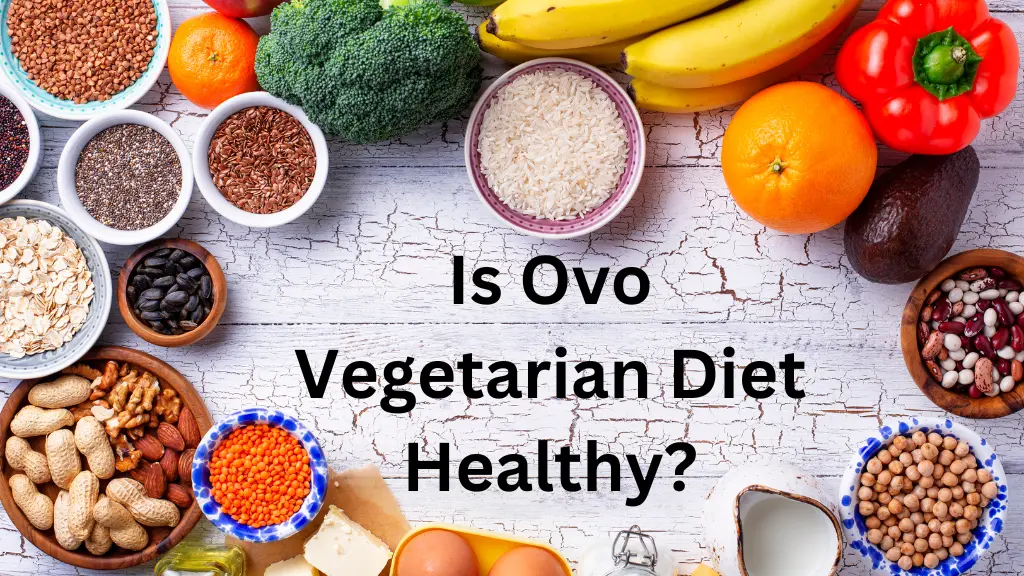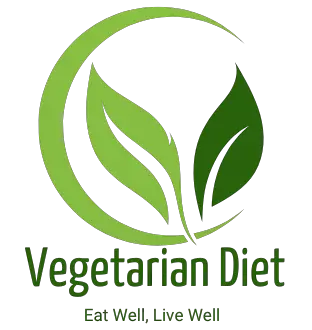Are you curious about the health benefits of an ovo-vegetarian diet? The answer is yes – an ovo-vegetarian diet can be a healthy choice, as long as you pay attention to your nutritional needs.
In this comprehensive blog post, we’ll explore the potential advantages of an ovo-vegetarian lifestyle, the key nutritional considerations, and practical tips for successfully transitioning to this plant-based diet.

Whether you’re a long-time vegetarian or simply looking to reduce your consumption of animal products, this article will provide you with the information you need to make an informed decision about the ovo-vegetarian diet.
What is an Ovo Vegetarian Diet?
An ovo-vegetarian diet is a type of vegetarian lifestyle that excludes all animal-derived foods except for eggs. This means that ovo-vegetarians consume plant-based foods, such as fruits, vegetables, grains, legumes, nuts, and seeds, as well as eggs. However, they abstain from consuming meat, poultry, fish, and dairy products.
The Potential Benefits of an Ovo Vegetarian Diet
1. Reduced Risk of Chronic Diseases
One of the primary benefits of an ovo-vegetarian diet is its potential to reduce the risk of chronic diseases. Studies have shown that vegetarian diets, including ovo-vegetarian diets, are associated with a lower risk of heart disease, type 2 diabetes, and certain types of cancer.
This is largely due to the higher intake of fruits, vegetables, and other plant-based foods, which are rich in antioxidants, fiber, and other beneficial nutrients.
2. Improved Digestive Health
An ovo-vegetarian diet is often high in fiber, which can be incredibly beneficial for digestive health. Fiber helps to promote regular bowel movements, prevents constipation, and may even reduce the risk of certain gastrointestinal conditions, such as diverticulitis and colon cancer.
3. Weight Management
Ovo-vegetarian diets are often lower in calories and higher in nutrient density compared to diets that include meat and dairy products. This can make it easier to maintain a healthy weight or even lose weight, as long as the diet is balanced and includes a variety of nutrient-rich plant-based foods.
4. Reduced Environmental Impact
Adopting an ovo-vegetarian diet can also have a positive impact on the environment. The production of meat and dairy products is generally more resource-intensive and has a larger carbon footprint compared to the production of plant-based foods.
By choosing an ovo-vegetarian diet, you can reduce your environmental footprint and contribute to a more sustainable food system.
Nutritional Considerations for Ovo Vegetarians
1. Protein
One of the primary concerns for ovo-vegetarians is ensuring adequate protein intake. While eggs are an excellent source of high-quality protein, ovo-vegetarians need to pair them with a variety of plant-based protein sources, such as legumes, nuts, seeds, and whole grains, to meet their daily protein needs.
2. Iron
Iron is another nutrient that ovo-vegetarians need to pay attention to. While there are many plant-based sources of iron, such as spinach, lentils, and fortified cereals, the body absorbs iron from plant sources less efficiently than iron from animal sources. Ovo-vegetarians may need to be more mindful of including iron-rich foods and considering iron supplements if necessary.
3. Vitamin B12
Vitamin B12 is an essential nutrient that is primarily found in animal-derived foods, including eggs. Ovo-vegetarians need to ensure they are getting enough vitamin B12 through supplementation or by consuming eggs regularly, as a deficiency in this vitamin can lead to serious health issues.
4. Omega-3 Fatty Acids
While eggs do contain some omega-3 fatty acids, ovo-vegetarians may need to consider supplementing with plant-based sources of omega-3s, such as walnuts, flaxseeds, and chia seeds, to ensure they are getting enough of these important fats.
Transitioning to an Ovo Vegetarian Diet
Planning a Balanced Ovo Vegetarian Diet
Transitioning to an ovo-vegetarian diet requires careful planning to ensure you are meeting all your nutritional needs. This means incorporating a variety of nutrient-dense plant-based foods, such as fruits, vegetables, whole grains, legumes, nuts, and seeds, as well as regularly consuming eggs to meet your protein and other nutrient requirements.
Tips for a Successful Transition
- Start Slowly: If you’re new to a plant-based diet, consider gradually eliminating meat and dairy products from your diet, rather than making a drastic change all at once.
- Educate Yourself: Learn about the nutritional requirements of an ovo-vegetarian diet and research the best plant-based sources of essential nutrients.
- Experiment with New Recipes: Explore a variety of ovo-vegetarian recipes to keep your meals exciting and flavorful.
- Consider Supplements: If you’re concerned about meeting your nutritional needs, talk to a healthcare professional about taking supplements, such as vitamin B12 or omega-3s.
- Stay Hydrated: Drinking plenty of water and staying hydrated is important for overall health and supporting the transition to a new diet.
Ovo Vegetarian Diet: Myths and Misconceptions
Myth: Ovo Vegetarians Don’t Get Enough Protein
This is a common misconception. Eggs are an excellent source of high-quality protein, and ovo-vegetarians can easily meet their protein needs by incorporating a variety of plant-based protein sources into their diet.
Myth: Ovo Vegetarians Can’t Build Muscle
While it’s true that some plant-based protein sources may not be as easily absorbed as animal-based proteins, ovo-vegetarians can still build and maintain muscle mass by consuming a balanced diet that includes a variety of protein-rich foods, such as eggs, legumes, nuts, and seeds.
Myth: Ovo Vegetarians Are Deficient in Essential Nutrients
As long as ovo-vegetarians are mindful of their nutrient intake and make sure to consume a diverse range of plant-based foods, they can meet their nutritional needs.
However, it’s important to pay attention to specific nutrients, such as vitamin B12, iron, and omega-3 fatty acids, to ensure optimal health.
The Bottom Line
An ovo-vegetarian diet can be a healthy and sustainable choice, offering a range of potential benefits, including reduced risk of chronic diseases, improved digestive health, and a lower environmental impact.
However, it’s crucial to be mindful of your nutritional needs and ensure that you are consuming a balanced and diverse diet that includes a variety of plant-based foods, as well as regularly incorporating eggs to meet your protein and other nutrient requirements.
By doing your research, planning your meals carefully, and working with a healthcare professional, you can embark on an ovo-vegetarian journey that supports your overall health and well-being.
So, if you’re considering an ovo-vegetarian diet, don’t hesitate to give it a try – your body and the planet will thank you!
Is an ovo-vegetarian diet a healthy choice?
Yes, an ovo-vegetarian diet can be a healthy choice, as long as it is planned and executed properly. Ovo-vegetarian diets are associated with a lower risk of chronic diseases, improved digestive health, and easier weight management. However, ovo-vegetarians need to pay attention to getting enough protein, iron, vitamin B12, and omega-3 fatty acids to meet their nutritional needs.
What are the nutritional considerations for ovo-vegetarians?
The key nutritional considerations for ovo-vegetarians include:
1. Ensuring adequate protein intake by combining eggs with a variety of plant-based protein sources.
2. Meeting iron needs, as plant-based iron is less readily absorbed.
3. Getting enough vitamin B12, which is primarily found in animal-derived foods.
4. Supplementing with omega-3 fatty acids, as ovo-vegetarians may not get enough from eggs alone.
What are the potential benefits of an ovo-vegetarian diet?
The potential benefits of an ovo-vegetarian diet include:
1. Reduced risk of chronic diseases like heart disease, type 2 diabetes, and certain cancers.
2. Improved digestive health due to the high-fiber content.
3. Easier weight management due to the lower calorie and higher nutrient density.
4. Reduced environmental impact compared to diets that include meat and dairy.
How can ovo-vegetarians transition to a healthy diet?
To transition to a healthy ovo-vegetarian diet, it’s important to:
1. Start slowly and gradually eliminate meat and dairy products.
2. Educate yourself on the nutritional requirements of an ovo-vegetarian diet.
3. Experiment with a variety of ovo-vegetarian recipes to keep meals exciting.
4. Consider supplements for nutrients like vitamin B12 and omega-3s, if needed.
5. Stay hydrated and focus on consuming a balanced, nutrient-dense diet.

Hi, this is a comment.
To get started with moderating, editing, and deleting comments, please visit the Comments screen in the dashboard.
Commenter avatars come from Gravatar.